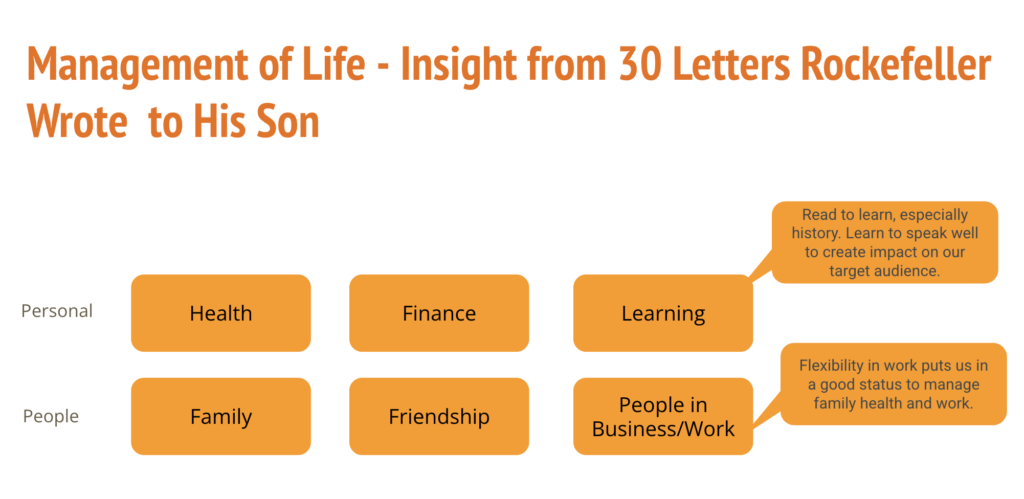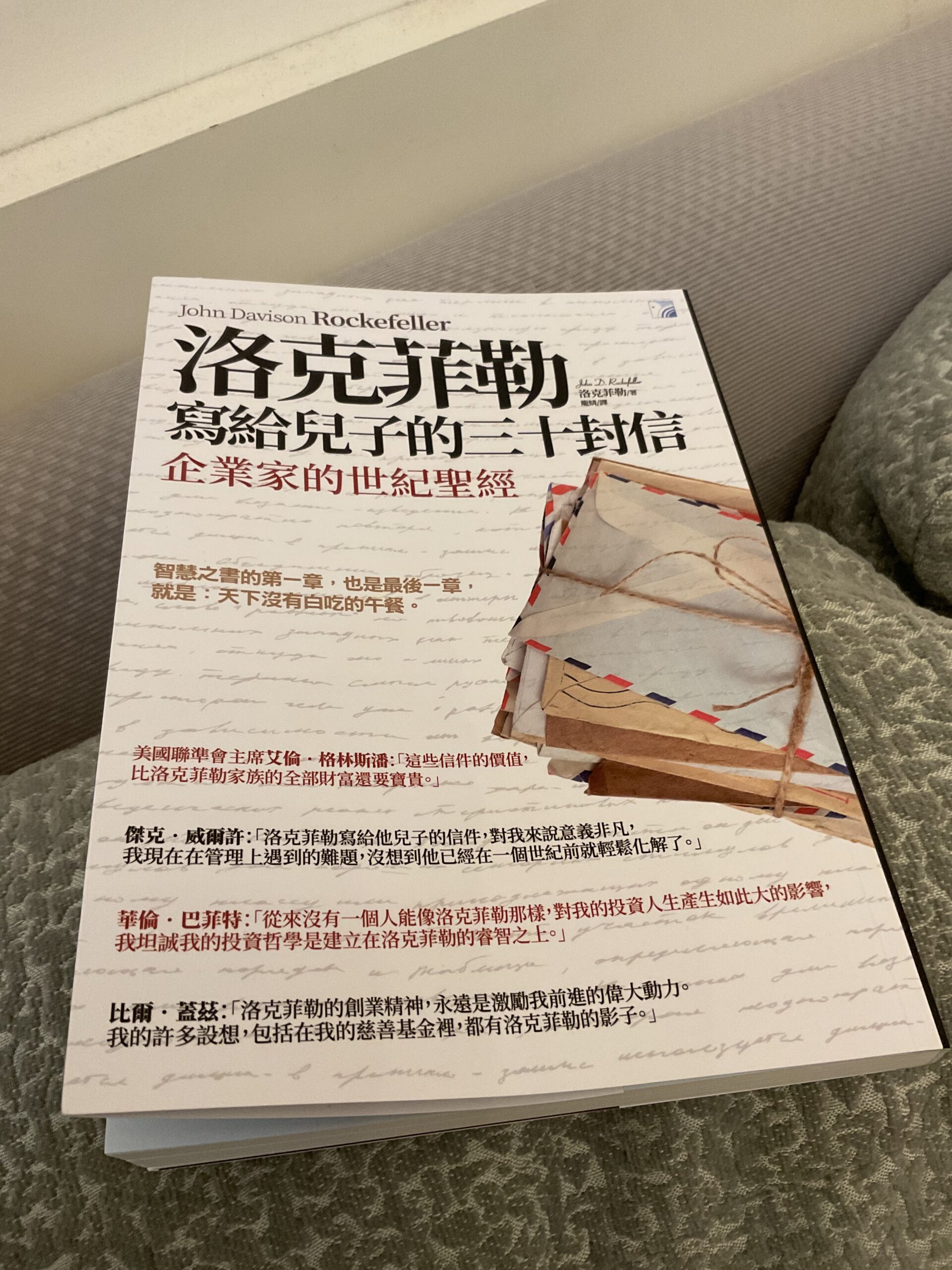Rockefeller is a successful businessman who runs an oil business in the US. 30 letters he wrote to his son start from the early age of his son who graduated from the university to the last milestone of his lifetime. 30 letters cover various topics from business, family, and health to relationships with people. Rockefeller’s strong faith in God is also revealed in letters testifying how he disciplines himself and loves people in God’s wisdom and teaching. Below I summarize key topics I learned from this book:

Health
This is a topic in the final letters Rockefeller wrote to his son. As Rockefeller got older, he felt more about the importance of health. Rockefeller managed his health from the early age of his life which I found at the start of his letters. He mentioned the flexibility of running his business. To balance the ways of managing his business and family, he WFH several days a week. WFH is even new in this era let alone one hundred years ago. This kind of flexibility keeps him mentally and physically in a good status.
Second, he is good at controlling his temper. His mature personality makes him calm to face other’s verbal fights and arguments. He keeps silent when others are in an emotional status.
Third, he spent extra money to take care of his body. In one of the letters, he said he spent quite a lot of money to maintain the clearance of the golf field to play golf in the snowy season. This means he is willing to “invest” the health.
People’s Relationship in Business
Partnership
There is one letter telling the story that his son wants to start a business with two people. While two people directly participate in the business, Rockefeller’s son tends to offer money only. Rockefeller does not agree with this kind of partnership. Why? When business is bad, the partners may seek Rockefeller family funding only, and this could pull them back to try more to save the business. When business is good, they would feel no need to share what they have worked so hard with the funding partner.
Board Room and Subordinate
Whether communicating with the top level, peers, or subordinates, learning to listen is always a lesson to bear in mind. Besides, learn to avoid overeating emotionally when our opinions get rejected, and see more advantages from others against the disadvantages. The way others communicate may not be right or meet our expectations, but we need to learn to calm down and discern if what he or she says makes sense in essence.
Family
Be grateful for what your family has done for us. Do not look for the payback for what we have contributed to our family. The success of marriage comes from consistent values in faith, family, and life. Meanwhile, the flexibility in work leaves space to take care of our family. From my point of view, this flexibility does not come by nature. We either search or create a flexible working environment ourselves.
Learn to Speak
Rockefeller taught his son how to deliver a speech when his son was invited to a speech at the university.
First, Delivering a speech is not to show off how much we have done but to create an impact on our target audiences. We do not need to show the details in front of our target audiences if they only want to know the high-level direction.
Second, do not repeatedly look at our speech scripts. Eye contact matters!
Third, control the time, and avoid sending too much information in a speech.
Fourth, always end the speech with a positive impression.
Keep Learning
No matter how old or young we are, keep learning. Learning is an attitude to cherish the talents God has embedded in us. As we read more, we build a sense of reading people. With more reading, we realize there are not too many new things. What does this mean? From personal understanding, it means we figure out the fundamental logic of how this world functions. Though Rockefeller encourages his son to diversify his reading, he especially suggests reading books about history and avoiding spending too much time reading books that are too far from the practical.


